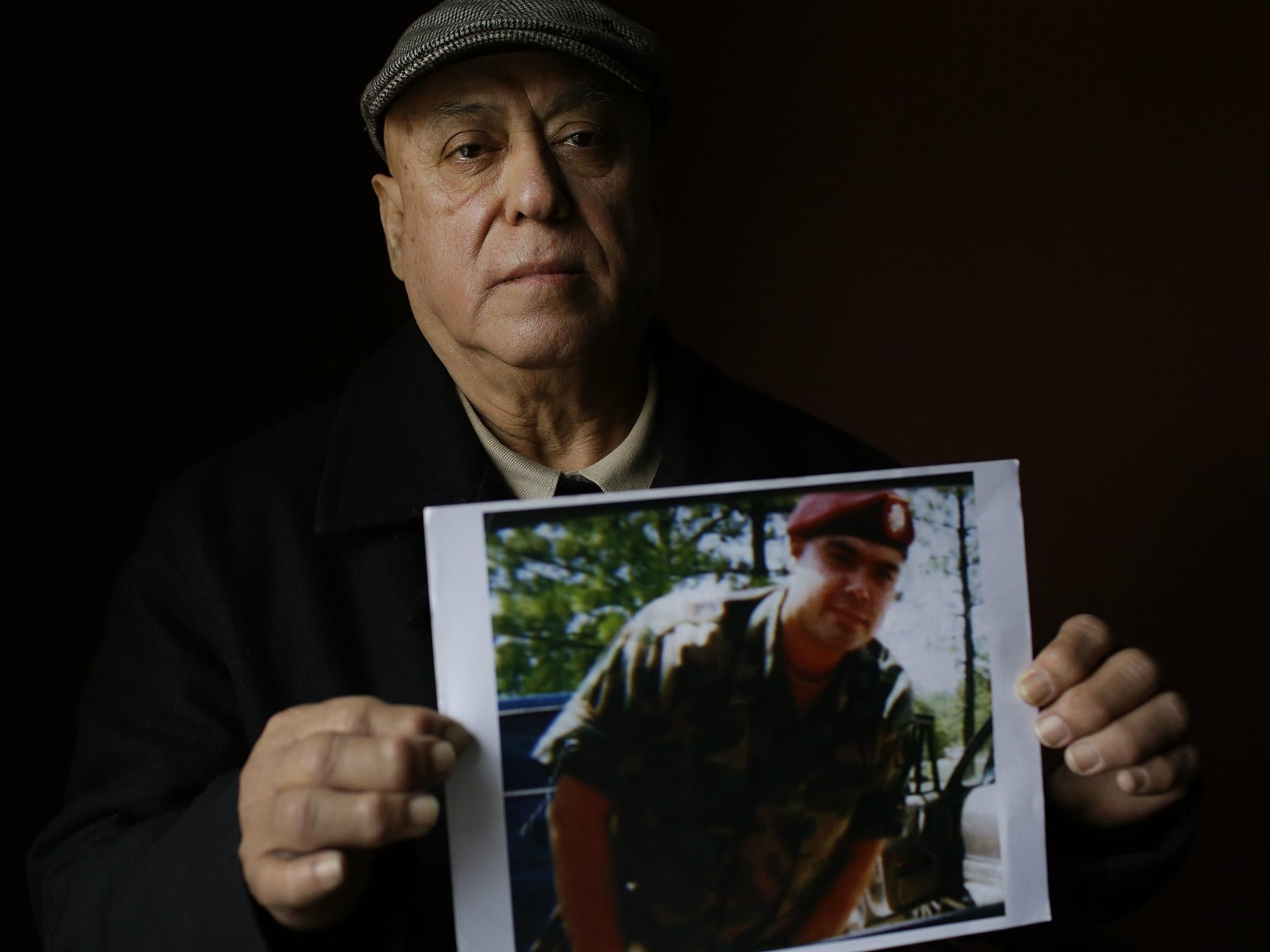US Army veteran who served two tours in Afghanistan deported to Mexico on a drug charge
He fears being recruited by drug cartels due to his combat experience

Your support helps us to tell the story
From reproductive rights to climate change to Big Tech, The Independent is on the ground when the story is developing. Whether it's investigating the financials of Elon Musk's pro-Trump PAC or producing our latest documentary, 'The A Word', which shines a light on the American women fighting for reproductive rights, we know how important it is to parse out the facts from the messaging.
At such a critical moment in US history, we need reporters on the ground. Your donation allows us to keep sending journalists to speak to both sides of the story.
The Independent is trusted by Americans across the entire political spectrum. And unlike many other quality news outlets, we choose not to lock Americans out of our reporting and analysis with paywalls. We believe quality journalism should be available to everyone, paid for by those who can afford it.
Your support makes all the difference.A US Army veteran who served two tours of duty in Afghanistan has been deported to Mexico over a drug conviction, according to US Immigration and Customs Enforcement (ICE).
Miguel Perez Jr, a former resident of Chicago, said he suffered from post-traumatic stress disorder as a result of his tours. After launching a hunger strike in the Wisconsin facility where he had been kept, Mr Perez was escorted to the border and handed over to Mexican authorities on late last week.
Senator Tammy Duckworth, a military veteran herself, family, and friends of Mr Perez argued that he had a right to stay in the country despite the drug charge because of his military service. They argued he is in need of mental health and substance-abuse care in the US.
“This case is a tragic example of what can happen when national immigration policies are based more in hate than on logic and ICE doesn’t feel accountable to anyone,” Ms Duckworth said in a statement.
Mr Perez is a father of two children born in the US. His parents, who brought Mr Perez to the US at the age of eight, are now naturalised citizens, as is one of his sisters.
Mr Perez’s attorney Chris Bergin, told the Chicago Tribune last month: “If you’re going to put your hand on your hearts every time at a game, you’re going to say thank you for your service and wear American flag lapel pins, and you’re going to criticise football players for taking a knee during the national anthem, it seems that’s all superficial and false patriotism if you’re not caring about an actual military veteran.”
Mr Perez was born in Mexico but is a green card holder, a legal permanent resident. The status allows for employment and travel in and out of the country, much like a citizen. However, it does not prevent deportation if the person committed a felony, as Mr Perez had been charged with doing.
In 2008, Mr Perez was arrested for handing over a case of cocaine to an undercover police officer and told CNN that it was his second tour of duty that led to it. “There was more alcohol and that was also when I tried some drugs. But the addiction really started after I got back to Chicago, when I got back home, because I did not feel very sociable,” he said.
He was sentenced to 15 years in prison and had his green card revoked. After serving seven years ICE began the deportation process.
In 2001 Mr Perez had thought, mistakenly, that enlisting in the Army would give automatic citizenship. His retroactive application for citizenship was denied earlier this month.
He was later discharged after his second tour in 2004. Mr Perez said he feared drug cartels in Mexico would recruit him for his combat experience and kill him if he refused to cooperate.
“If they are sentencing me to a certain death, and I am going to die, then why die in a place that I have not considered my home in a long time?” he told CNN.
Join our commenting forum
Join thought-provoking conversations, follow other Independent readers and see their replies
0Comments